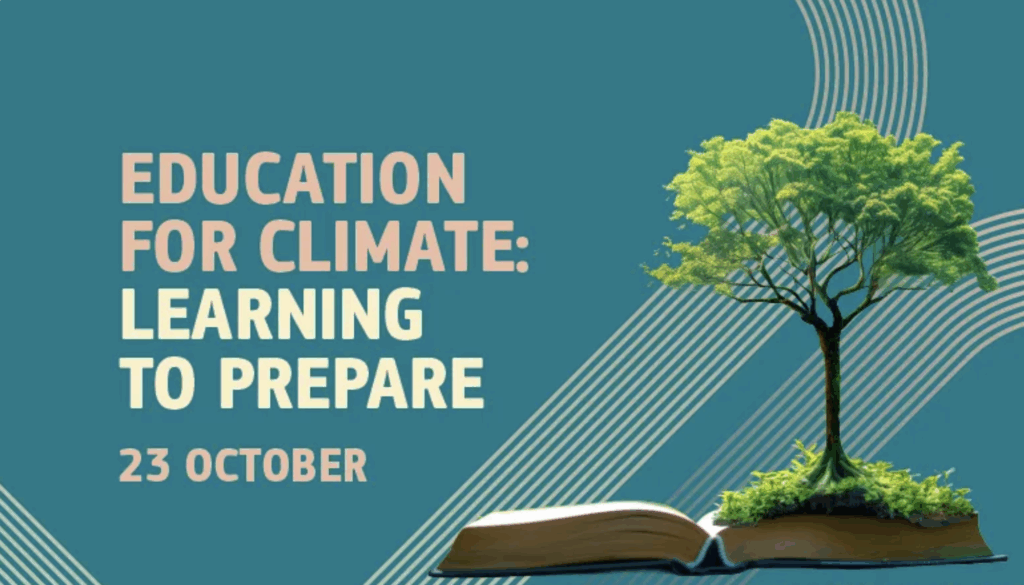Education for Climate Day 2025
27/10/2025

EARLALL joined Education for Climate Day 2025 on 23 October, this year held under the theme Learning to Prepare. The event gathered educators, students, policymakers and innovators to discuss how education can foster a culture of preparedness in the face of climate change.
Panel discussions explored preparedness across different sectors, with particular focus on highlighting education’s essential role in building a proactive and resilient society. The day opened with remarks by Pia Ahrenkilde Hansen, Director-General for Education, Youth, Sport and Culture at the European Commission, who set the tone for a day of exchange and inspiration.
The first roundtable, moderated by Johnny Dabrowski, Coordinator at the Climate Education Coalition, examined how international frameworks can be translated into practical, resilience-building strategies for education in Europe.
Meriela Buonomo, Senior Specialist at the Education Programme IIEP-UNESCO, emphasised that “education is not only a victim of climate change, it is also an agent for resilience.” Buonomo stressed the need to identify both vulnerabilities and capacities within education systems to strengthen their response to climate challenges. Building on this, Erik Guilyardi, Climate Scientist at CNRS-IPSL and President of the Office for Climate Education, underlined the importance of interdisciplinarity: “We want to build the citizens of tomorrow, not just students who have good knowledge about climate.” Guilyardi advocated for stronger collaboration with local actors to contextualise scientific knowledge for learners at all levels.
Dr Iryna Nikolayeva, Lead of In the MOOD for Climate Action at the Learning Planet Institute, reflected on the shift needed in education systems that were designed for the industrial era. “We now need people with emotional intelligence, adaptability, and resilience,” Nikolayeva said, stressing the importance of soft skills in addressing climate challenges. The panel concluded with Bella Nestorova, Team Leader for Disaster Risk and Resilience at DG ECHO, who referred to a Eurobarometer survey showing that two-thirds of Europeans want to learn how to cope with risks. She highlighted the need to integrate preparedness into school curricula and empower educators as key multipliers.
The second panel moved from classrooms to communities, examining how local actors can help learners develop the skills needed to navigate climate disruptions. Dr Aravella Zachariou, Head of Unit for ESD in Cyprus and Chair of the UNECE ESD Steering Committee, illustrated how climate change affects not only ecosystems but also culture, using the example of a traditional woven basket no longer possible to create due to environmental shifts. Rozabela Singh, Project Planner for BALTFLOODS, presented the case of Lappeenranta in Finland, where citizen engagement and real-time data are helping the city prepare for floods and reduce pollution, highlighting three key points such as the opportunity to codesign cities for community engagement, involving residents to make cities a space for them.
Valentina Di Giuseppe Di Paolo, Expert in Voluntary Work at Italy’s Civil Protection Department, shared best practices such as experimental programmes in kinder garten using games and comic strips like Io Non Rischio to teach preparedness in an engaging and inclusive way.
Education for Climate Day 2025 served as a strong reminder that education is key to equipping people and communities to act and adapt in a changing world. EARLALL’s participation aligns with its mission to promote lifelong learning and skills for sustainable regional development, ensuring that regions and local authorities remain at the forefront of Europe’s transition toward a climate-resilient and inclusive future.

